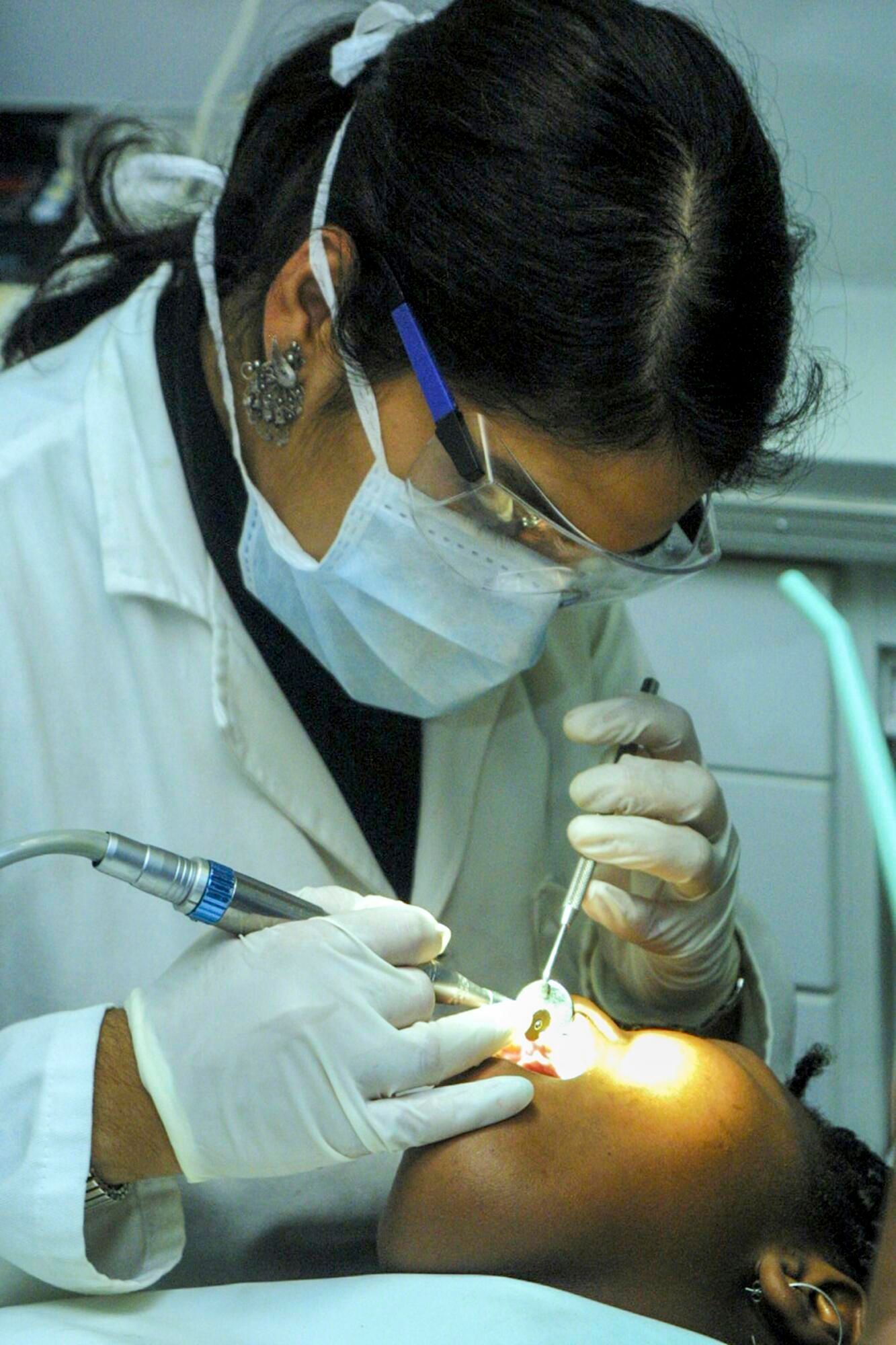Did you know that about 5 million people in the U.S. get their wisdom teeth removed each year? Many of these cases involve impacted wisdom teeth, which can lead to significant pain and complications.
Let's examine the different types of impacted wisdom teeth, their symptoms, and the available treatment options!
Impacted Wisdom Tooth Types
Impacted wisdom teeth occur when there isn't enough space for them to emerge properly. They can grow at various angles in the jaw, leading to different types of impaction, each of which can cause its own set of problems.
Mesial Impaction
Mesial impaction is the most common type. In this case, the tooth angles forward towards the front of the mouth. This can put pressure on the adjacent tooth, leading to pain and potential damage.
Vertical Impaction
Vertical Impaction occurs when the tooth remains upright but doesn't fully emerge from the gum. This type can be difficult to detect without X-rays since it often doesn't cause immediate pain. However, if left untreated, it can still lead to complications.
Horizontal Impaction
Horizontal impaction occurs when a tooth grows sideways, directly into the roots of an adjacent tooth. This type is more severe and often results in significant pain and damage to the nearby teeth. It usually requires surgical intervention to remove the impacted tooth.
Distal Impaction
Distal impaction is less common and occurs when the tooth angles backward, towards the rear of the mouth. Like mesial impaction, it can exert pressure on surrounding teeth and tissues, causing discomfort and potential alignment issues.
Partial vs. Full
In addition to these types, impacted teeth can be classified as partial or full. A partially impacted tooth has erupted through the gum but not fully, leaving part of the tooth still covered.
This can create a flap of gum tissue where food particles can get trapped, leading to infection and decay. A fully impacted tooth remains entirely below the gum line and is often more challenging to treat.
Impacted Wisdom Tooth Symptoms
One of the most common signs is swelling around the jaw. This swelling is often accompanied by tenderness and can make it difficult to open your mouth fully.
Another typical symptom is pain in the back of the mouth, which may come and go or be constant. This pain can extend to nearby teeth or even radiate to the ear. In some cases, impacted wisdom teeth can lead to headaches.
The pressure from the impacted tooth can cause tension in the jaw muscles, leading to pain that can spread to the head. You might also notice an unpleasant taste in your mouth or bad breath. This is usually a sign of infection or decay in the impacted tooth.
Red, swollen, or bleeding gums are another symptom to watch for. These issues occur because the impacted tooth creates pockets where bacteria can thrive, leading to gum inflammation.
If left untreated, this can develop into more serious gum disease. You might also experience difficulty chewing or biting down due to the misalignment of the teeth caused by the impacted wisdom tooth.
In some cases, you might not experience any obvious symptoms. This is why regular dental check-ups are important. Your dentist can identify impacted wisdom teeth through x-rays before they start causing problems.
Treatment Options for Impacted Wisdom Teeth
In many cases, extraction is the best solution to prevent ongoing pain and potential complications. The oral surgery procedure for wisdom tooth extraction is common and is usually done by a dentist or an oral surgeon.
Before the extraction, the dentist or oral surgeon will administer local anesthesia to numb the area around the tooth. In some cases, general anesthesia may be used, especially if multiple teeth are being removed or if the procedure is complex.
Once the area is numb, the dentist will make an incision in the gum tissue to expose the tooth and bone. The tooth may be divided into sections to make it easier to remove.
After the tooth is removed, the dentist cleans the site and may place stitches to help the healing process. Gauze is placed over the extraction site to control bleeding and help form a blood clot. This clot is essential for proper healing and to prevent a condition called dry socket, which can be painful.
In some cases, antibiotics or other medications may be prescribed to manage infection or pain before and after the procedure. Alternative treatments, such as adjusting the teeth's position or using orthodontics, may be considered in specific situations. However, extraction is often the most effective long-term solution for impacted wisdom teeth.
Recovery and Pain Relief Post-Extraction
Recovery from a wisdom tooth extraction typically takes a few days to a week. During this time, following the dentist's instructions is vital for a smooth healing process.
Resting after the procedure is important, as your body needs time to heal. It's best to avoid strenuous activities for at least 24 hours after the extraction.
Managing pain is a significant part of the recovery process. Over-the-counter pain relievers like ibuprofen or acetaminophen can help reduce pain and swelling.
Your dentist may also prescribe stronger pain medication if needed. Applying ice packs to the outside of your cheek for the first 24 hours can also help with swelling and discomfort.
It is recommended that you eat soft foods and drink plenty of fluids. Foods like yogurt, applesauce, and mashed potatoes are gentle on the healing site.
Avoid hot drinks, alcohol, and foods that are hard, crunchy, or sticky. These can irritate the extraction site. It's also important not to use a straw, as the sucking motion can dislodge the blood clot, leading to a painful condition known as dry socket.
Managing Impacted Teeth
Understanding the types of impacted wisdom teeth, their symptoms, and treatment options is key to managing this common dental issue.
Dr. Andres Guerra-Andrade is known in the Lutz and Tampa area for their personalized approach to his patients' oral and maxillofacial needs. He's dedicated to providing the highest quality of care, offering a wide range of services, including dental implants and wisdom tooth extraction.
Get in touch today to find out how he can
help with your impacted teeth!




